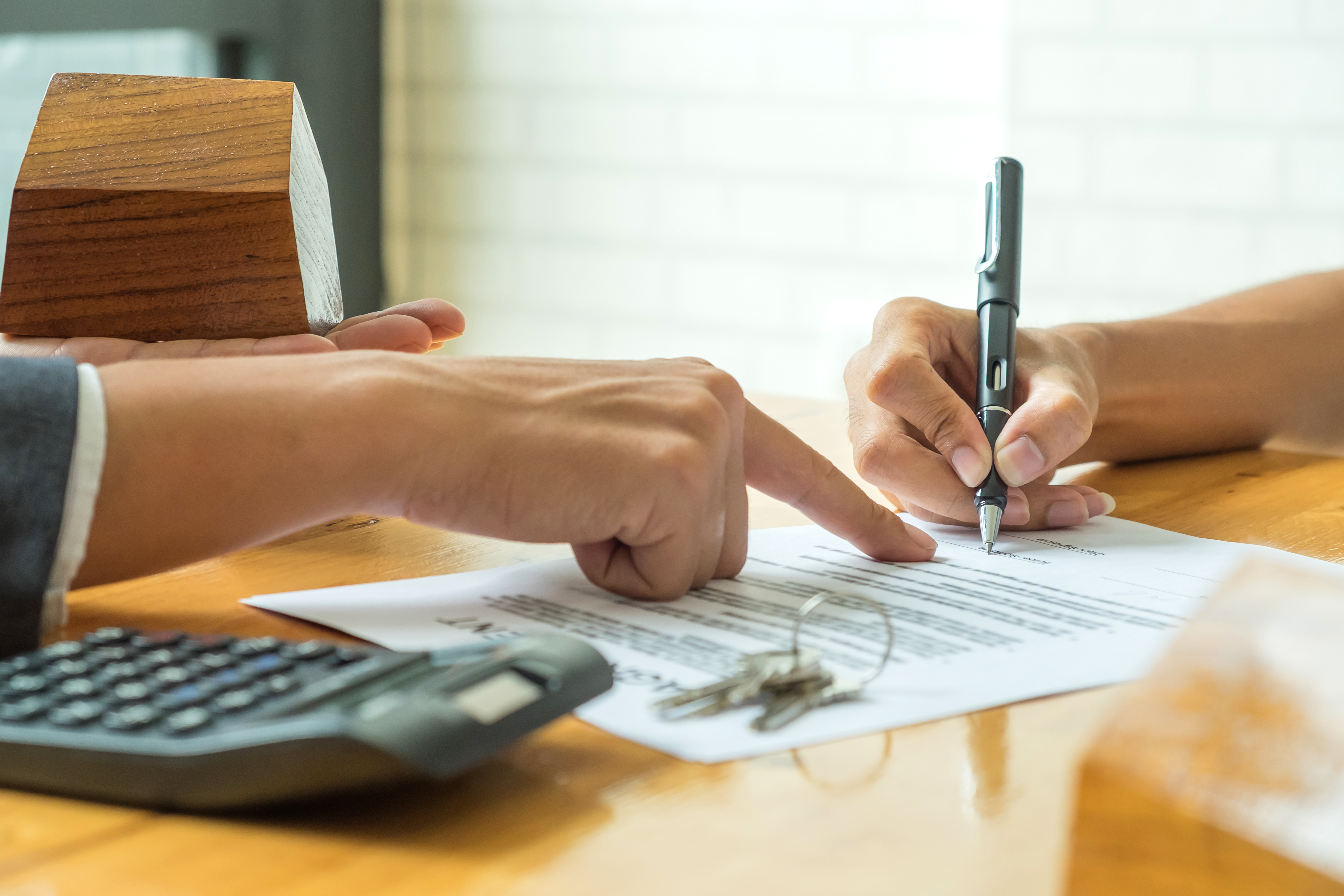No matter how eager you are to start looking at homes and putting in offers on the ones you like, it’s worth taking some time to learn about the final stages of buying a home. If it’s your first time buying a home, you might fall for the common trap of thinking that getting ready for the closing process is only something your mortgage lender has to worry about. However, that’s rarely the case.
Understanding the various steps of the process means you’re going to be in a better position later to help your closing team by providing complete documents in a timely fashion. You’ll also be able to give them crucial information throughout the process. Knowing the home closing process in advance means you can get through it faster, eliminate potential roadblocks and improve your chances of preventing the process from stalling or falling out from underneath you.
A home closing process often takes multiple weeks, with a multitude of different things happening simultaneously. An escrow account might start the process, while a final walk-through might happen before the signatures seal the deal. You might need a real estate attorney to help you navigate the legalities, and closing costs might catch you off-guard. If you get pre-approved for a mortgage, you will probably close the deal faster than if you didn’t.

Closing Your Home Purchase in 12 Steps
Is Charleston, SC a good place to live? Plenty of people certainly seem to think so. Whether you’re buying a vacation property, retirement home, or a residence to call home now, you’ll still have to go through the following 12 steps to close the deal.
1. Making the Earnest Deposit
You’ve been pre-approved for a mortgage or have reviewed your finances and know your budget. Once you’ve decided on the home you’d like to purchase and are ready to make an offer, part of the Agreement to Purchase is making an earnest money deposit. The earnest money is deposited into an escrow account that has been set up by your agent’s brokerage or in some instances, an attorney. This escrow payment is a good faith deposit to purchase a property like Kiawah Island real estate.
2. Get a Lawyer
You may wish to acquire legal aid before an Agreement to Purchase is signed by all parties. Legal aid to counsel you in further understanding the Agreement to Purchase is optional, but recommended. You’ll have to pay a fee, but you’ll get an experienced legal opinion from a real estate attorney about possible issues with the paperwork. You will eventually be required to select an attorney to handle your closing. Professional legal guidance on all your closing documents helps you understand the actual impact of complex jargon.
3. Insurance and Title Search
Obtaining Insurance and conducting a title search is a vital step in this process. Your attorney will make sure a title search is completed that examines public records to confirm the legal ownership of a piece of property. If any claims exist, they might require resolution before closing the deal. Ensuring that you have a clean title means that if you buy a piece of Isle of Palms Wild Dunes property, nobody else will be able to make a legal claim to the title later.
4. Negotiating the Closing Costs
The escrow deposit and attorney fees are just two of many entities or services that might cost you money. If you aren’t mindful, these expenses can snowball into huge bills. However, some of these costs, including inspections, can spare you headaches later. Be watchful for closing costs that prey on your inexperience, and always be willing to ask for a discount or shop around for the best prices. Be sure to read reviews and research, so you are dealing with only respected, experienced vendors.
5. Finish the Home Inspection
Once the Agreement to Purchase has been signed by all parties, your first step should be getting the physical home inspection scheduled, as it is crucial to finding possible problems with the particular property. Finding serious issues during an inspection in a home you want to buy gives you a chance to withdraw from the deal, request a reduction in sales price, request a credit at closing for the estimate of the repairs, or in some cases, request the seller make repairs.
6. Make the Pest Inspection Separate
This inspection, called a CL-100, requires a different kind of specialist. In particular, they’re looking for wood-destroying insects and organisms, such as carpenter ants or termites. Even a small infestation can wreck a home, but it can be dealt with. Certain mortgage providers won’t underwrite your home without a pest inspection taking place.
7. Renegotiation of the Offer
Even if your initial purchase offer was already accepted, you might choose to pursue price renegotiations to reflect issues presented during inspections. You might decide to keep the original purchase price, but ask the seller to pay for any necessary repairs. It never hurts to ask. Depending on the Agreement to Purchase you signed, you may have the right to back out of the deal with or without penalty should the seller refuse or be unable to fix a major issue that was detected along the way.

8. Get Your Interest Rate Locked In
Talk to your chosen lender and get your interest rate locked in. Interest rates are always subject to change, even those for mortgages. Rates can vary based on your credit score, the kind of loan you have, the property type, and the geographic region where you are buying. If you can lock in your rate, you won’t be subjected to market swings that might increase your rates before closing the deal. Even a 0.25% rate hike can impact your monthly payments and how long you will have to pay on your mortgage.
9. Satisfy the Six Contingencies
You should speak with your real estate agent and make sure your offer for real estate should be contingent upon at least six distinct things.
- Getting a financing rate at a satisfactory to you, affordable interest rate.
- Your satisfaction with all home inspections.
- Seller fully disclosing known home issues.
- Your satisfaction with the Cl100 inspection.
- Your satisfaction with insurance rates (flood, content, wind/hail)
- Your satisfaction after reviewing all HomeOwners Association- documents, including budgets and meeting minutes.
10. Meet the Specified Funding Requirements
You most likely deposited earnest money when you signed the Agreement to Purchase to indicate good faith in going through with this transaction. In some instances, it may be negotiated that you will have to deposit more earnest money. The earnest money goes towards your down payment, so you’ll have to pay for all the other services with different funds.
11. The Final Walk-Through
Before you sign the closing papers, usually hours before the scheduled closing, you should look through the property one final time. That is your chance to verify there aren’t new issues or damage since the final inspection. You may also want to confirm that the seller has finished any required fixes and that nothing the Agreement to Purchase included was removed (like a refrigerator or light fixture).
12. Comprehending the Paperwork
Read all the paperwork yourself, ask your real estate agent your questions and concerns, and also turn to your real estate attorney for verification and understanding. Read every page carefully and at your own pace. Never let anyone waiting for your signature rush you, be it a mortgage lender or a notary.

Frequently Asked Questions
Knowing the 12 steps involved with the home closing process gives you an overview of that part of buying your next residence. Still, it might also naturally lead to questions that others have had before you.
How Long Does Closing Take?
Every process is different. However, the average duration is 30 to 45 days. The actual day of signing the final paperwork might take an hour or two if all goes well. Being organized, having an experienced loan officer, and working with a reliable and experienced real estate agent are all factors that can expedite affairs.
How Quickly Should I Finish Lender Requests?
Do these as quickly as you can. This is one area you have a lot of control over as a buyer, and turning over paycheck stubs, tax returns, and bank statements late can slow things down. Be proactive and ask your loan officer if they might need more documentation or information instead of waiting for them to ask for anything.
Should I Avoid Big Financial Changes Right Now?
Missed payments, new jobs, and taking on additional debt are all things that might impact your financial standing. Don’t max out any credit cards, miss monthly payments, open new accounts, or make huge purchases during your pre-approval process. Otherwise, your terms might change, and you might even lose your qualification.
Remember, There’s an Opening and a Closing
Being prepared for the many steps of the house closing process gives you many benefits. You’ll know what to expect, and you can possibly expedite the process to some degree. You can protect your interests by being aware of potential pitfalls.
Still, before you can close a house, you need to find one you’re interested in and make an opening offer. That might involve a lot of house hunting, and multiple opening offers before you find a seller willing to work with you. If you want professional help in finding great homes and real estate that meet your needs and dreams, then consider working with Dunes Properties to find remarkable possibilities.

